The Benefits of Freight Farms at High Schools: Cultivating Future Leaders
High schools nationwide are integrating Freight Farms to boost their curricula, promote sustainability, and prepare students for future careers in agriculture, technology, and environmental science. These innovative, hydroponic farms provide fresh produce year-round while serving as hands-on learning labs that enrich the educational experience.
Expanded Applications:
1. STEM Education Integration
Freight Farms offer practical applications for STEM subjects, allowing students to engage in biology, chemistry, environmental science, and engineering. For instance, Mountain Vista High School uses their Freight Farm to provide students with hands-on experience in hydroponic farming, where they learn about plant biology, environmental systems, and agricultural technology. This type of learning enhances students' understanding of STEM concepts through real-world applications.
2. Sustainability Programs
Schools can utilize Freight Farms to support sustainability efforts, growing fresh produce on-site, reducing carbon footprints, and integrating farm-to-table initiatives in their cafeterias. Morgan Hill Unified School District has successfully integrated a Freight Farm into their sustainability programs, using it to supply fresh produce for their cafeterias, thereby reducing their reliance on external food sources and promoting a sustainable food system on campus.
3. Career and Technical Education (CTE)
Freight Farms can be used in CTE programs to teach students skills in agriculture, horticulture, and food production. For example, the Floyd County School Innovation Center incorporates a Freight Farm into their FFA program, where students gain practical skills in farming and agricultural management, preparing them for careers in the rapidly growing field of sustainable agriculture.
4. Community Engagement and Outreach
High schools can use Freight Farms as a community resource, involving local residents in farming activities, hosting workshops, and donating fresh produce to local food banks. Schools like Morgan Hill Unified School District have extended their Freight Farm's impact beyond the classroom, using it to engage with the community and provide fresh produce to local families in need.
5. Health and Wellness Initiatives
By integrating Freight Farms into health and wellness programs, schools can ensure that students have access to fresh, nutrient-rich foods. The farm can also be a platform for educating students about the importance of nutrition and healthy eating habits.
Conclusion
Freight Farms provide high schools with a powerful tool to enrich education, promote sustainability, and prepare students for future careers. By integrating these farms into various aspects of school life, institutions can cultivate future leaders who are well-versed in sustainable practices and environmental stewardship.
Interested in bringing a Freight Farm to your school?
Learn more about how our innovative farming solutions can transform your educational programs and community outreach efforts.
Hydroponic container farms are transforming classrooms into dynamic environments for social emotional learning (SEL). Learn how these innovative tools cultivate essential life skills while growing fresh produce.
Discover how container farms are revolutionizing STEM education by providing hands-on learning in botany, physics, chemistry, and more. Prepare students for the future with innovative, sustainable farming systems.
Discover 16 compelling reasons to start container farming today! From becoming your own boss and contributing to your community, to growing fresh, local produce year-round, container farming offers personal, financial, and environmental benefits.
Schools across the country are finding innovative ways to make their Freight Farms more functional and educational for students. By customizing the interior and exterior, schools can turn these farms into engaging spaces for hands-on learning, science projects, and sustainability initiatives.
Whether looking to supply sustainable food, jumpstart modern agriculture curriculums, encourage student engagement, or simply grow the best greens around, universities around the country are relying on hydroponic container farms to create impactful farm to campus programs.
At Freight Farms, we work with campuses to integrate hydroponic produce into dining services and school curricula. Read on as we explore the ways a vertical farm can transform your campus.
We’re proud that so many schools use our hydroponic farming technology for their farm to school program. From California to Massachusetts, Freight Farms are put to work to achieve each of the pillars of farm to school: local food sourcing; student access to healthy food; and learning opportunities. In this blog, we explore each.
Freight Farms had the pleasure of exhibiting at three education-focused events, each providing a unique platform to connect with educational decision-makers. Our mission was to share the benefits of vertical farming, showcasing how a container farm can serve not just as a food source for the school and/or community, but as a dynamic classroom for various courses, research, and STEM opportunities.
One of the most promising advancements in campus dining is the incorporation of hydroponics. This method offers numerous benefits, including improved sustainability, enhanced food security, and fresher, more nutritious produce.
By integrating crops grown in container farms, universities can revolutionize their dining hall menus with fresh, local produce year-round.
One of the most promising advancements in campus dining is the incorporation of hydroponics. This method offers numerous benefits, including improved sustainability, enhanced food security, and fresher, more nutritious produce.
By integrating Freight Farms into the K-12 curriculum, schools can address multiple educational and environmental objectives, fostering a hands-on learning experience that aligns with modern educational standards.
In this article, we examine the effectiveness of Freight Farms and traditional school gardens in K-12 settings and analyze their benefits, challenges, and impact on educational environments.
In this article, we explore how PTAs and Booster Clubs can successfully fund a Freight Farm, providing students with a cutting-edge learning tool that pushes the boundaries of traditional classroom education.
K-12 schools can effectively leverage community partnerships and corporate sponsorships to fund the purchase of a Freight Farm and enhance their educational offerings.
Through crowdfunding platforms, K-12 schools can secure the necessary funds to bring a Freight Farm to their students, providing invaluable educational experiences beyond traditional classroom settings.
It’s crucial to recognize the potential of hydroponics in classroom settings beyond just science experiments. Hydroponic farming allows students to explore a variety of academic paths, such as science, technology, nutrition, environmental studies, and much more.
By integrating hydroponic farms, schools can reduce their environmental impact, provide fresh, local produce to their communities, and offer hands-on learning opportunities for students.
As universities worldwide are increasingly adopting sustainability initiatives, this article compares Freight Farms and traditional greenhouse gardens to determine which method of growing food is more suitable for universities based on technology, efficiency, cost, and educational value.
Urban farming, traditionally seen as a method to combat food deserts and promote sustainability in city landscapes, has rooted itself within a novel environment: the educational sector. This integration of agriculture into daily learning activities is not merely about planting seeds but about sowing the fundamentals of science, responsibility, and teamwork among young learners.
How do I find someone to manage the Club Freight Farm? How do I raise funds to sustain a Club container farm? How do I build a curriculum around a Freight Farm? What support do you provide? We answer Boys & Girls Clubs' top 7 FAQs around starting and sustaining a Club container farming program.
We had the opportunity to exhibit at the 2022 FFA National Convention and Expo, and were blown away by the event. We were consistently impressed by the FFA students’ maturity and knowledge and their advisors’ passion. The experience only solidified our belief that hydroponic container farms and FFA chapters are a perfect match. Read our full takeaway from the event!
During our conversation with Saint Joseph’s College of Maine, we discussed the unique way the farm arrived on campus, how students found their callings through a part-time job at the farm, and a very cool new certificate program called the Institute for Local Food System Innovation.
Around the country, private, public, charter, and vocational schools are looking for ways to add school sustainability initiatives, many turn to container farming as a way to nurture hands-on education in the classroom and good nutrition in the cafeteria.
Saint Joseph’s College is using its campus hydroponic container farm as a platform for student employment and engagement, inspiring students to pursue sustainable lifestyles during and after college.
Maryville University's farm is co-operated by the University and Fresh Ideas, their food service company. In this article, we hear from Maryville’s resident farmer on her role in the farm and other sustainability ideas for schools.
Gen Z is leaving the comforts of home and heading to their college campuses of choice. As colleges and universities look to appeal to this new demographic, they can’t discount the importance that food will play in students’ matriculation decisions and on-campus engagement.
In part two of this blog series, we’re breaking down the Question and Answer section of our webinar with Clark University and Sodexo.
Incorporating a Leafy Green Machine into dining services is a fantastic way to demonstrate a commitment to sustainability, as well as engage with students around food and promote nutrition and wellness.


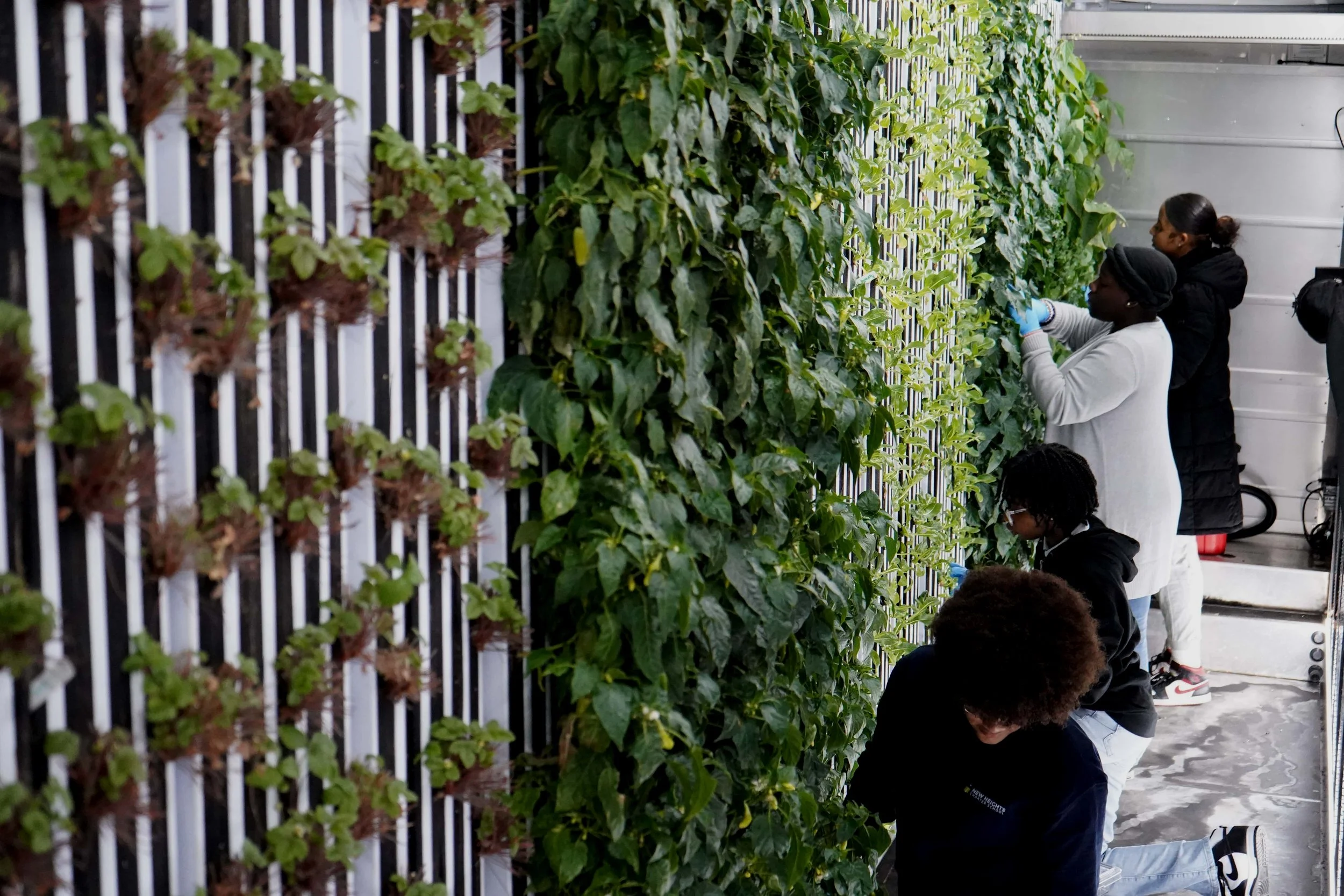









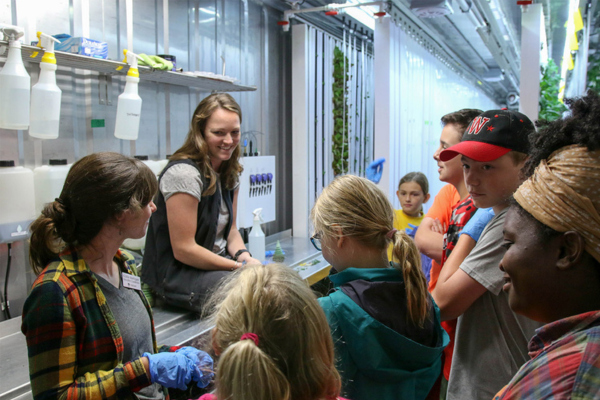



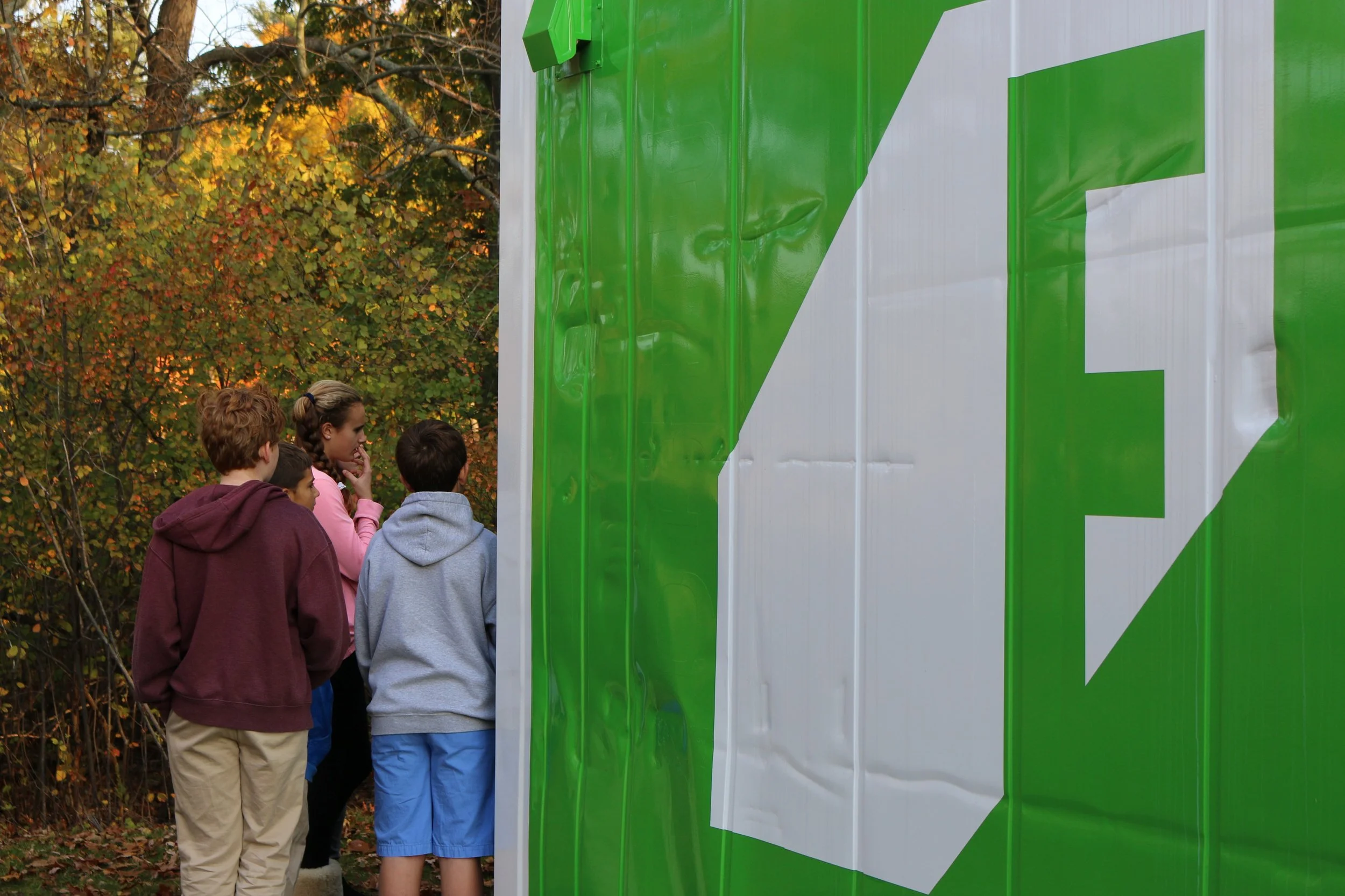



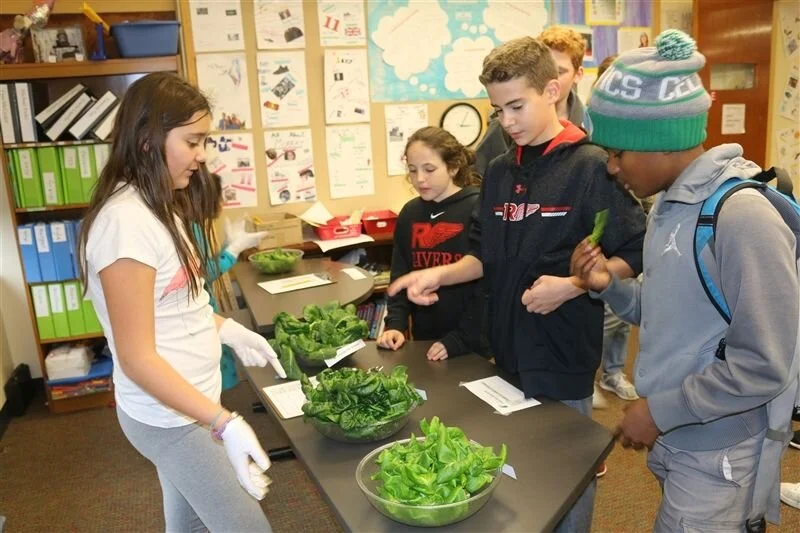

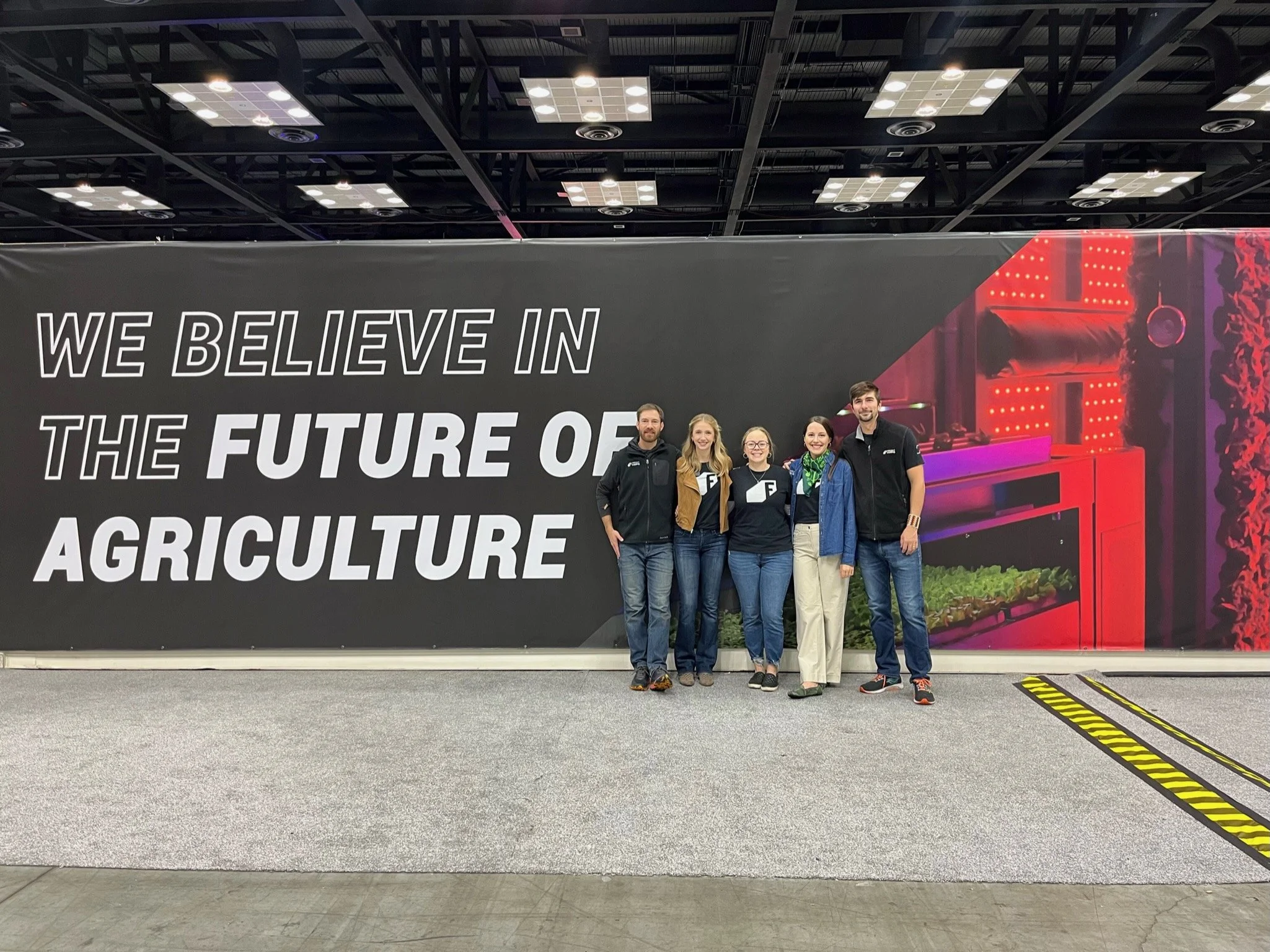







Malnutrition impacts up to half of hospital patients, but a new solution is taking root—container farming. By growing nutrient-rich produce directly on hospital campuses, healthcare providers can serve fresher food, reduce waste, and improve patient recovery. Hospitals like AdventHealth Celebration have seen over 200% salad bar revenue growth and major sustainability gains. Discover how this “Food as Medicine” approach is transforming patient care and hospital operations.